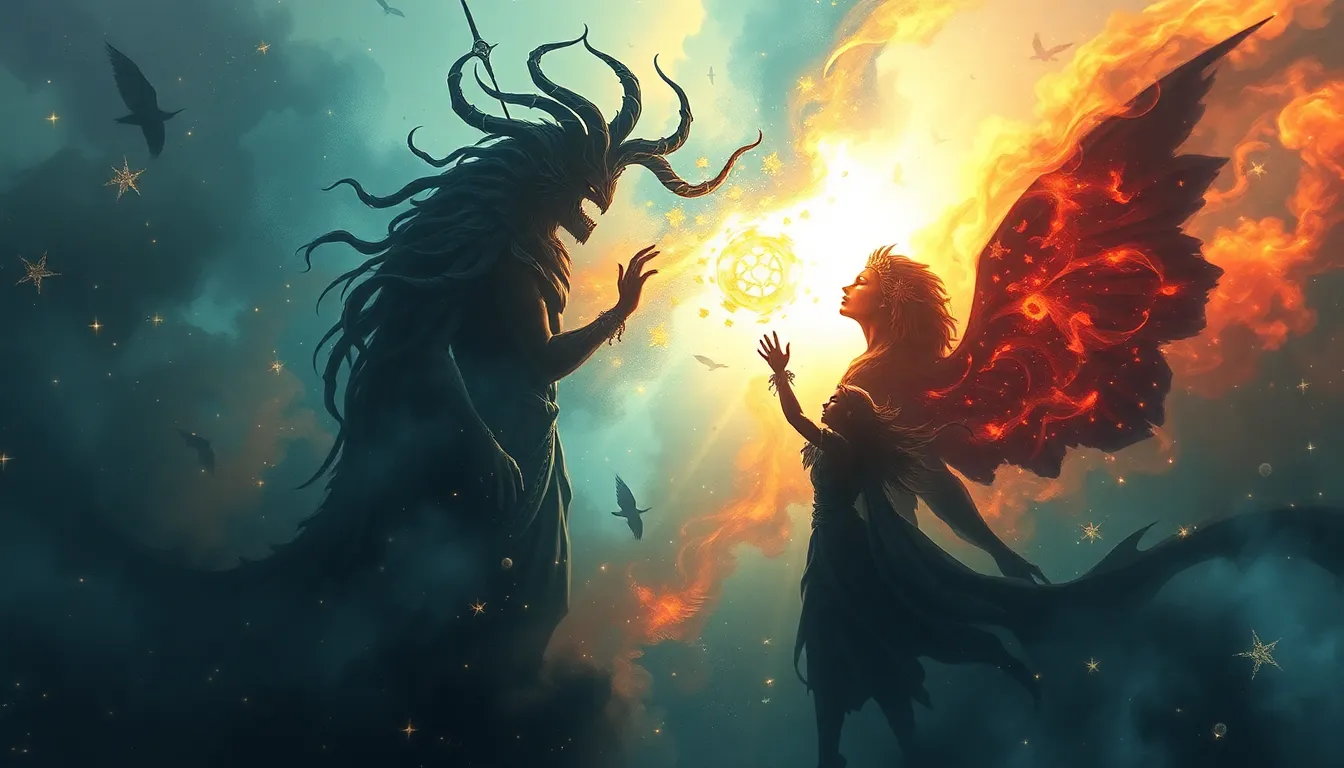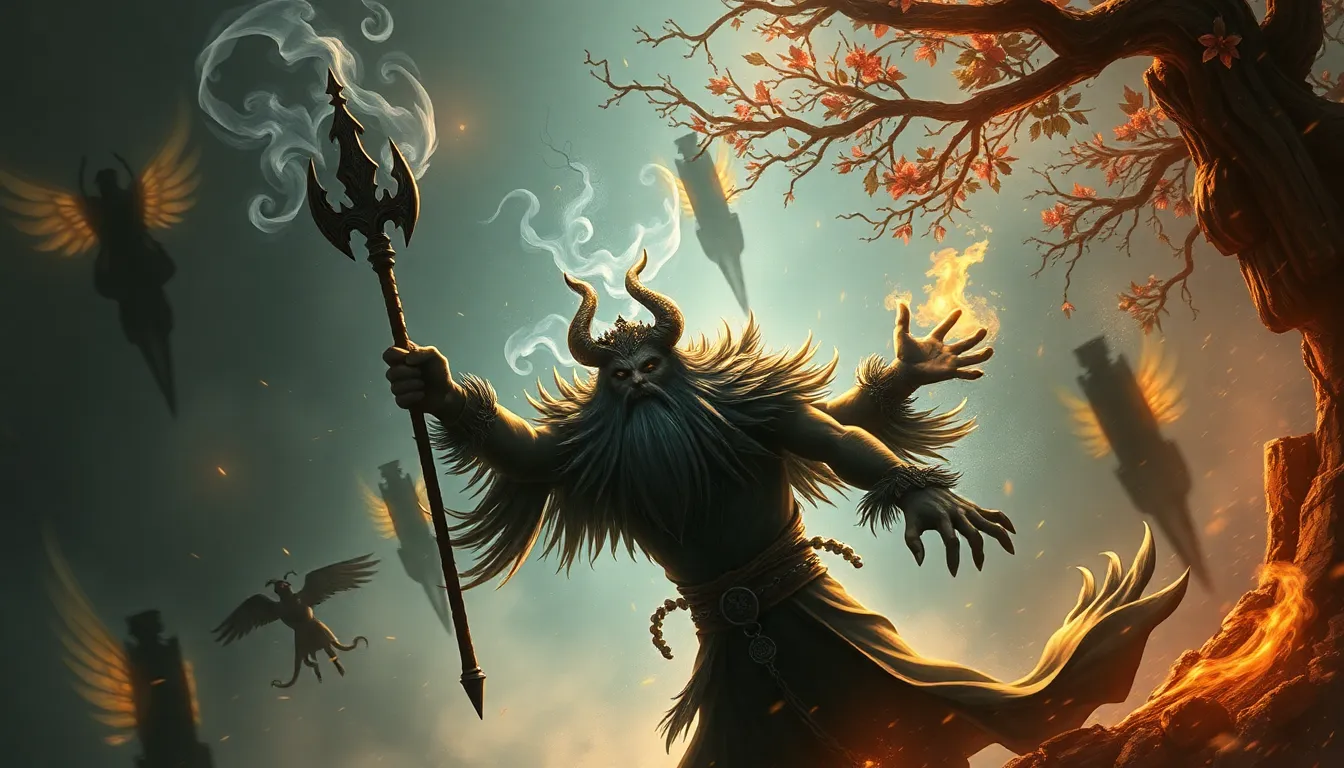From Silence to Voice: Transformative Tales of Empowerment in Myths
1. Introduction: The Power of Myth in Human Experience
Myths are more than mere stories; they are the narrative frameworks through which cultures express their values, beliefs, and collective experiences. They serve as a bridge between the past and present, providing insight into the human condition. At the heart of many myths lies the powerful theme of silence and voice, encapsulating the struggles for expression, identity, and empowerment. This article will explore how various myths depict the transformative journey from silence to voice, highlighting the significance of these narratives in our understanding of empowerment.
2. Understanding Silence: The Symbolism and Its Implications
Silence in mythology often carries deep symbolism and implications. It can represent:
- Oppression and powerlessness
- Wisdom and contemplation
- Fear of repercussions
- Inner strength and resilience
Across various mythological contexts, silence can signify a range of human experiences, from the suppression of voices in patriarchal societies to the quiet strength found in solitude. Psychologically, silence can evoke feelings of isolation or introspection, while culturally, it reflects the norms and taboos surrounding expression and dissent.
3. Voices of Change: Myths that Inspire Empowerment
Many myths recount the journeys of characters who transition from silence to voice, embodying the universal struggle for empowerment. These stories resonate across cultures and time periods, illustrating the resilience of the human spirit. Key myths that exemplify this transformation include:
- The tale of Persephone
- The myth of Inanna
- The story of Mulan
These narratives not only inspire individuals to reclaim their voices but also reflect the broader societal changes that occur when marginalized groups assert their agency.
4. Case Study 1: The Tale of Persephone and the Cycle of Seasons
The myth of Persephone is a profound exploration of transformation and empowerment. Her descent into the underworld symbolizes the experience of being silenced, both by external forces and internal struggles. However, Persephone’s eventual return to the surface signifies the reclamation of her voice and agency. This cyclical journey mirrors the seasons, illustrating themes of rebirth and renewal.
Through her dual identity as both a goddess of spring and queen of the underworld, Persephone embodies the power of embracing all aspects of oneself. Her story reinforces the message that empowerment often arises from confronting and overcoming adversity.
5. Case Study 2: The Myth of Inanna’s Descent
Inanna, the Sumerian goddess, undertakes a daring journey into the underworld, challenging authority and confronting her own vulnerabilities. Her descent is a metaphor for the experiences many face when they speak out against oppressive systems. Inanna’s confrontation with various deities represents the struggle against societal norms that seek to silence individuals.
By navigating this treacherous path, Inanna emerges transformed, embodying a new sense of identity and power. Her story illustrates the importance of resilience and the necessity of facing challenges to reclaim one’s voice and agency.
6. Case Study 3: The Story of Mulan
Mulan’s narrative is a compelling depiction of defiance against societal norms. Disguising herself as a male warrior to take her aged father’s place in battle, Mulan challenges traditional gender roles and expectations. Her journey is not merely one of survival; it is an assertion of her identity and capabilities.
Mulan’s voice becomes a powerful tool for change, as she not only saves her family but also redefines what it means to be a woman in her culture. Her story has inspired generations, highlighting the transformative power of courage and self-expression.
7. Cultural Reflections: Global Myths of Empowerment
Empowerment myths are not confined to a single culture; they are a global phenomenon. Across different cultures, similar themes emerge, showcasing the universal struggle for voice and representation. For example:
- The African tale of Anansi, who uses his wit to outsmart others and gain respect.
- The Native American story of the Spider Woman, who weaves the world into existence and gives voice to creation.
- The Japanese myth of Amaterasu, the sun goddess who emerges from a cave, bringing light and life back to the world.
These myths resonate strongly with contemporary social movements, as they echo the ongoing fight for justice and equality, reminding us that the quest for empowerment is a timeless struggle.
8. The Role of Storytelling in Amplifying Voices
Storytelling is a fundamental aspect of myth-making and cultural preservation. It serves as a conduit for sharing experiences and amplifying voices, particularly those of the marginalized. Oral traditions have played a crucial role in transmitting knowledge and values across generations, ensuring that the stories of empowerment are not lost but celebrated.
In many cultures, storytelling is not just a means of entertainment but a powerful tool for social change, enabling communities to challenge the status quo and inspire collective action.
9. Modern Interpretations: Reimagining Myths for Today’s Audience
In contemporary literature, film, and art, ancient myths are often reimagined to resonate with today’s audience. Adaptations such as:
- Films like Disney’s “Mulan” and “Persephone,” which emphasize themes of empowerment and identity.
- Novels that reinterpret ancient tales, adding modern contexts and perspectives.
- Artistic expressions that reflect the struggles for voice and agency in today’s society.
These modern interpretations draw on mythological themes to address current issues, proving that the stories of transformation and empowerment remain incredibly relevant.
10. Conclusion: The Enduring Legacy of Empowerment Myths
The exploration of myths that transition from silence to voice reveals the enduring nature of these narratives in human experience. They serve as powerful reminders of the struggles for empowerment and the resilience of the human spirit. As we continue to share and evolve these transformative tales, we not only honor our cultural heritage but also inspire future generations to find their voices in a world that often seeks to silence them.



